Search the Special Collections and Archives Portal
Search Results
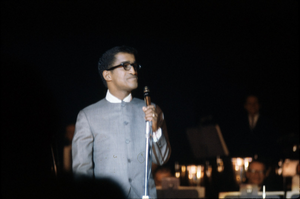
Slide transparency of Sammy Davis, Jr. onstage at the Sands Hotel's Copa Room, Las Vegas, February 1963
Date
Archival Collection
Description
Sammy Davis, Jr. performing at the Copa Room in the Sands Hotel in February 1963.
Image
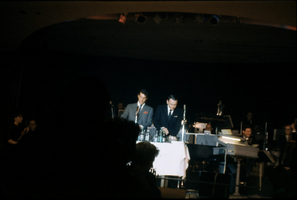
Slide transparency of Dean Martin and Frank Sinatra performing at the Sands Hotel, Las Vegas, February 1963
Date
Archival Collection
Description
Dean Martin (left) and Frank Sinatra performing at the Copa Room in the Sands Hotel in February 1963. As part of their act, they are tending bar.
Image

Slide transparency of Sammy Davis, Jr. singing in the Copa Room, Las Vegas, February 1963
Date
Archival Collection
Description
Sammy Davis, Jr. performing at the Copa Room in the Sands Hotel in February 1963.
Image

Slide transparency of Sammy Davis, Jr. and Dean Martin singing at the Sands Hotel, Las Vegas, February 1963
Date
Archival Collection
Description
Sammy Davis, Jr. and Dean Martin performing at the Copa Room in the Sands Hotel in February 1963.
Image
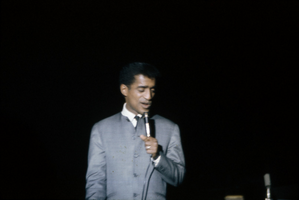
Slide transparency of Sammy Davis, Jr. at the Copa Room in the Sands Hotel, Las Vegas, February 1963
Date
Archival Collection
Description
Sammy Davis, Jr. performing at the Copa Room in the Sands Hotel in February 1963.
Image
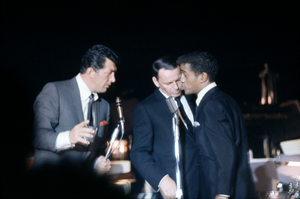
Slide transparency of Dean Martin, Sammy Davis, Jr., and Frank Sinatra performing at the Sands Hotel, Las Vegas, February 1963
Date
Archival Collection
Description
From left to right, Dean Martin, Frank Sinatra and Sammy Davis, Jr. performing at the Copa Room in the Sands Hotel in February 1963.
Image
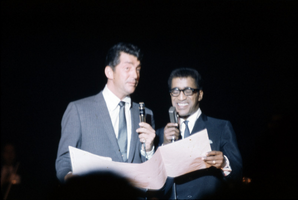
Slide transparency of Dean Martin and Sammy Davis, Jr. performing at the Sands Hotel, Las Vegas, February 1963
Date
Archival Collection
Description
Dean Martin and Sammy Davis, Jr. performing at the Copa Room in the Sands Hotel in February 1963.
Image
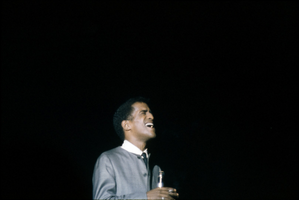
Slide transparency of Sammy Davis, Jr. performing at the Sands Hotel, Las Vegas, February 1963
Date
Archival Collection
Description
Sammy Davis, Jr. performing at the Copa Room in the Sands Hotel in February 1963.
Image

Slide transparency of Dean Martin, Sammy Davis, Jr., and Frank Sinatra singing at the Sands Hotel, Las Vegas, February 1963
Date
Archival Collection
Description
From left to right, Dean Martin, Frank Sinatra (partically obscured), and Sammy Davis, Jr. performing at the Copa Room in the Sands Hotel in February 1963.
Image

Slide transparency of Sammy Davis, Jr. singing in the Copa Room of the Sands Hotel, Las Vegas, February 1963
Date
Archival Collection
Description
Sammy Davis, Jr. performing at the Copa Room in the Sands Hotel in February 1963.
Image
